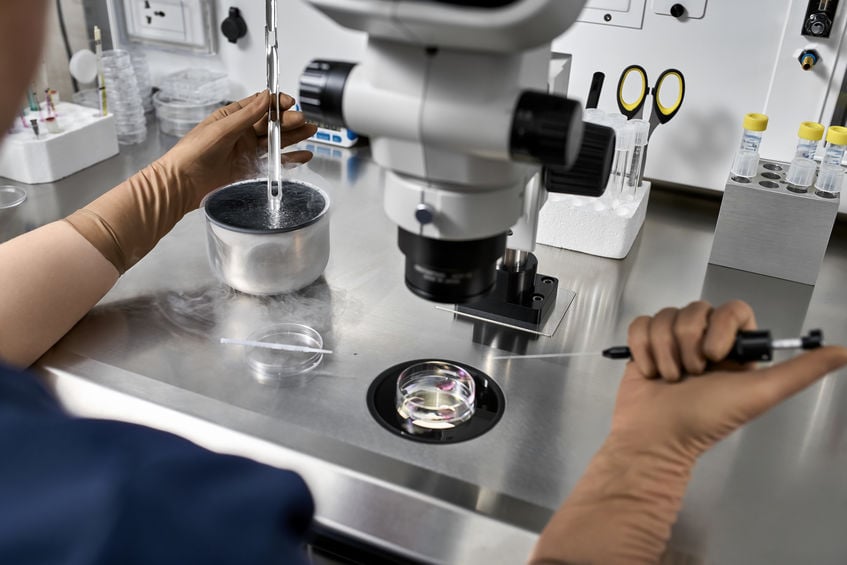Everyone Deserves To Start A Family
In today’s world, families come in all shapes and forms. Same-sex couples and the LGBTQ+ community often consider family building. However, each couple will face unique challenges compared to a cisgender or heterosexual couple. These challenges could be one of the reasons why only 1.1% of same-sex couples have children. Luckily, several techniques can help same-sex couples start or grow a family.

Do you need ART?
Assisted reproductive technology (ART) is handling eggs and sperm outside the body to create an embryo. Doctors created ART for heterosexual couples with infertility. Today, these techniques help same-sex couples with or without fertility challenges. ART covers the methods that involve the handling of embryos. However, other reproductive techniques are just as effective.
Starting a family with IUI
Lesbian and trans men may have perfect reproductive health and be eager to start a family. With a donor sperm sample, this couple can benefit from IUI. Intrauterine insemination is a medical procedure where a doctor inserts healthy sperm directly into the uterus. The fertility clinic prepares the donor sperm sample via sperm washing. At the same time, the child’s chosen carrier may take hormonal medication to increase the production of mature eggs. The doctor will then insert the sperm sample using a cannula around the ovulation period. If successful, the sperm will fertilize the egg and continue toward a live birth.
Turning to IVF
In vitro fertilization, or IVF, is the gold standard of ART. The process starts by retrieving an egg and sperm sample. From there, a fertility clinic creates an embryo in a lab, then inserts the embryo in the woman’s uterus. The underlying concept is the same for same-sex couples but varies based on the couple. For example, some LGBTQ+ couples may need an egg or sperm donor. Others may require a gestational carrier. The fertility clinic will be able to assess the couple’s needs for the best possible outcome.
Becoming fully present with reciprocal IVF
Reciprocal IVF is an excellent way for some couples to be fully immersed in the IVF process. The clinic can take the eggs from one partner, use donor sperm, and place the embryo in the other partner. The technique makes the first partner genetically related to the child. However, the second partner becomes biologically linked to the child through the joy of pregnancy. Reciprocal IVF is excellent for instances where one partner has infertility struggles but still wants to be part of the process.
Consider surrogacy
For couples who want biological children, surrogacy may be best. Surrogacy also works well for same-sex couples with infertility. With surrogacy, a surrogate mother carries the baby to full term and bears the child for the couple. The couple will either provide a known donor or receive an anonymous donor. Surrogacies require a range of legal, physical, emotional, and psychological support for all parties. Fertility clinics usually have a range of resources to help navigate the surrogacy process.
Types of surrogacies
Surrogacies can be traditional or gestational. Traditional surrogacies involve IUI with the mother’s natural eggs and one of the couple’s sperm. Gestational surrogacy involves using both donor sperm and eggs to create an embryo via IVF. Some couples will use a donor egg from a relative to give both partners a genetic link. Others will fertilize multiple donor eggs with sperm, giving both the chance to become biological parents.
Other forms of family planning
ART and other reproductive technologies are effective. Yet, some same-sex couples may choose different routes. Adoption and fostering are options. However, these are fraught with legal hoops based on the state’s laws. LGBTQ+ couples continue to earn more rights, but there is still much to be done to make these options a smooth process. Some couples may decide on freezing eggs and sperm for later use. Fertility preservation comes in handy for those deciding on transitioning.
Start your family with the right support system
Assisted reproductive technology and other family planning forms have made starting a family a possibility for many people in the LGBTQ+ community. Luckily, many fertility clinics believe that all couples deserve the right to start a family. Each situation is unique, so make sure to find a clinic that aligns with these values and can address every concern. Speak with a clinic that can explore all options to get a family started soon.





